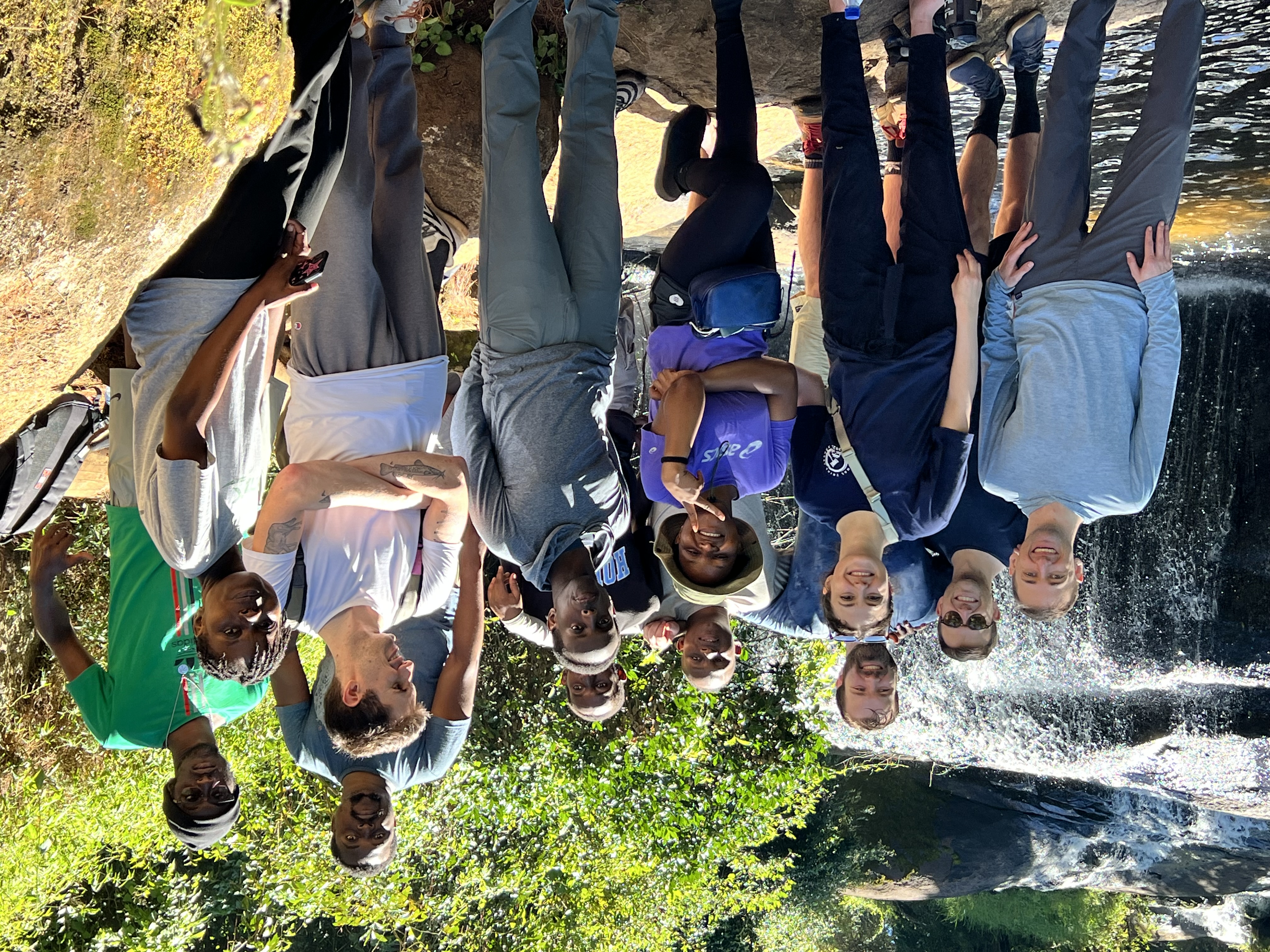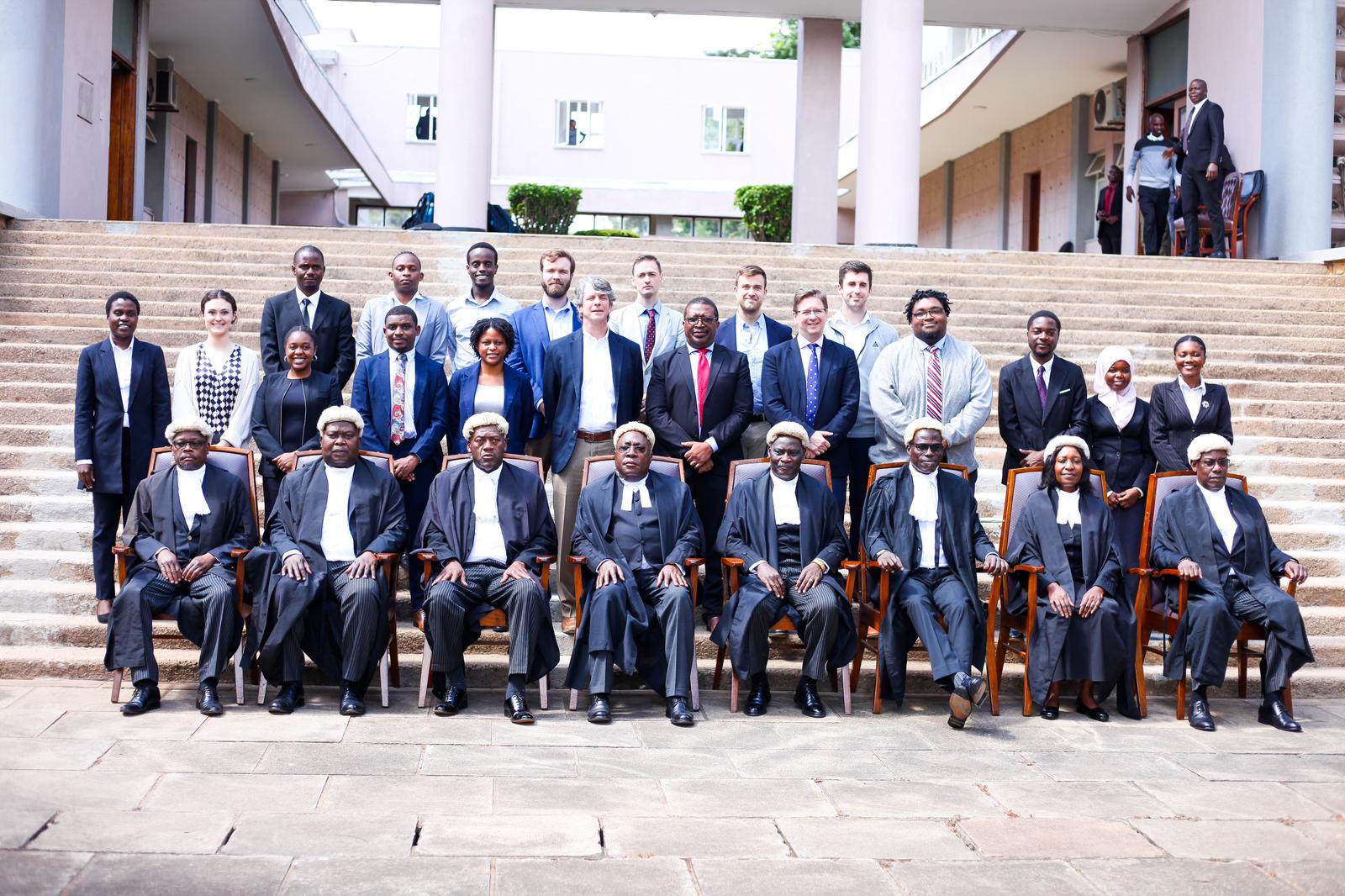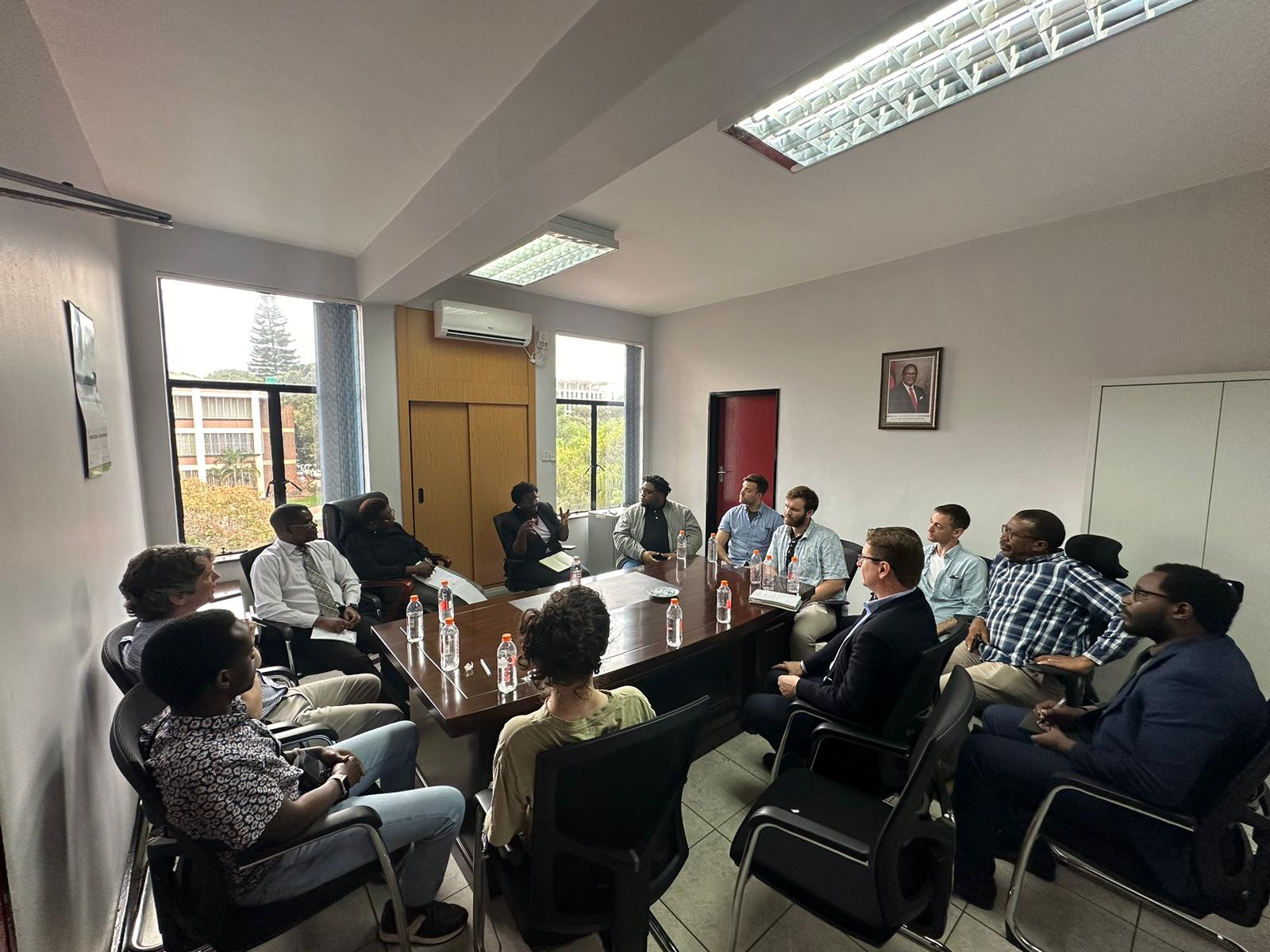A group of students from the University of Maryland Francis King Carey School of Law, accompanied by Professors William Piermattei and Peter Danchin, embarked on a transformative trip to Malawi. The May trip was part of the Environmental Justice, Human Rights, and Public Health course that took place in the Fall of 2023, a collaboration between Maryland Carey Law and the University of Malawi. This course allows students to explore the intersection of environmental justice, human rights, and public health through international and comparative legal lenses.
This trip not only offered a unique educational experience but also strengthened the partnership between the two institutions. As part of their itinerary, the group engaged in various activities, each contributing to a deeper understanding of Malawian culture, legal systems, and environmental challenges.
Highlights and Student Reflections
The journey began with a challenging yet rewarding hike up Zomba Mountain, where Marisa Koontz noted the breathtaking views of Zomba, the University, and Lake Chilwa. "The hike led us to William’s Falls, a beautiful waterfall tucked into the mountains with crystal clear, cold water that was welcome after our long, hot hike," Marisa shared. This day set the tone for the rest of the trip. The Maryland and Malawi students had plenty of opportunity for discussion during the hike.

Another highlight of their trip was visiting the Supreme Court of Appeal in Blantyre. Jack Cashmere described the visit as an extraordinary opportunity to observe Malawi’s highest court in action. "It was fascinating to see the parallels between Malawi’s common law system and our own civil procedure coursework," he remarked. The group also had an insightful discussion with the Justices, led by the Honorable Chief Justice Rizine Mzikamanda, which covered the duties of attorneys and environmental justice in Malawi.
After a five-hour drive through the Malawian countryside, the group arrived in Lilongwe where they visited the U.S. Embassy, and met with the embassy's deputy chargé d'affaires and discussed the goals of the Maryland-Malawi law school partnership. This meeting underscored the international dimension of their work and the importance of global legal cooperation.
The students also had a productive meeting with the newly formed Malawi Environmental Protection Authority (MEPA). This meeting was a crucial step toward establishing a formal partnership focused on environmental projects. Adam Friedgen described the visit to Lake Malawi as a serene moment, with the group witnessing a fiery sunset over the mountains—a perfect end to a productive day.
Maryland students also participated in a Student Symposium alongside their Malawian counterparts, presenting papers on topics such as carbon markets, plastic pollution, migratory bird protection, and evolving international climate change law. During their stay, the students developed strong bonds with their Malawian peers. The welcome dinner on May 4th was a lively event, featuring traditional Malawian cuisine and spirited games that fostered camaraderie. This trip was not only an opportunity for academic learning but also for building lasting relationships and gaining an understanding of different cultural perspectives.
This year's trip to Malawi was a resounding success, reinforcing the importance of global partnerships in addressing complex issues like environmental justice and public health. The experiences and insights gained will undoubtedly enrich the students' future legal careers and contribute to ongoing collaborative efforts between the University of Maryland Francis King Carey School of Law and the Chancellor College of Law at the University of Malawi.
As we look forward to more collaborations, the memories and connections made during this trip will continue to inspire and inform our collective efforts in the realms of law, justice, and public health.
Maryland Carey Law is grateful for the generous support of the David and Leslie Glickman Interprofessional Health Law Fund whose lead funding enabled the development of the Environmental Justice, Human Rights, and Public Health Course and the student-faculty exchange program. Additional support for this unique and collaborative program was provided by UMB’s Center for Global Engagement.


